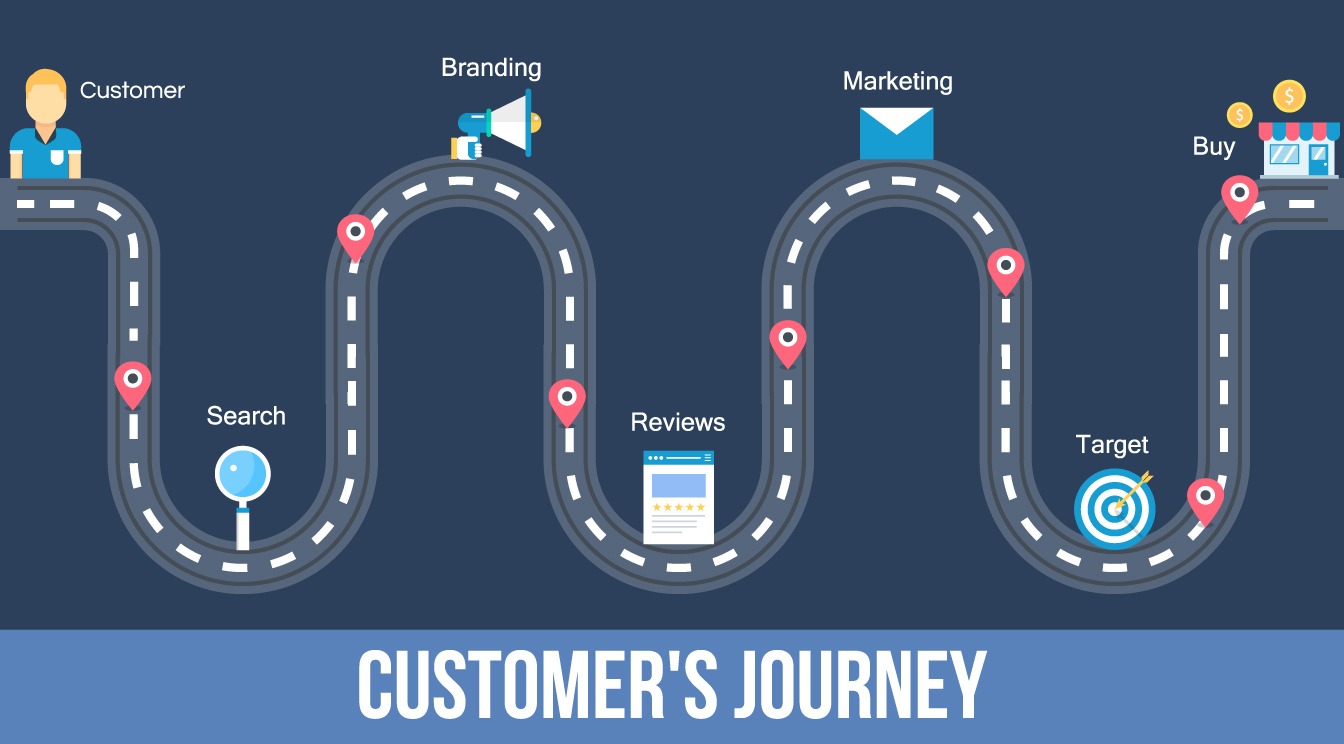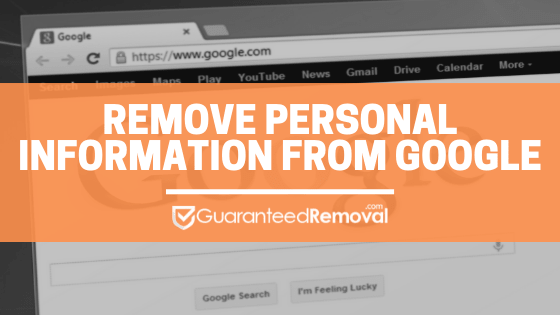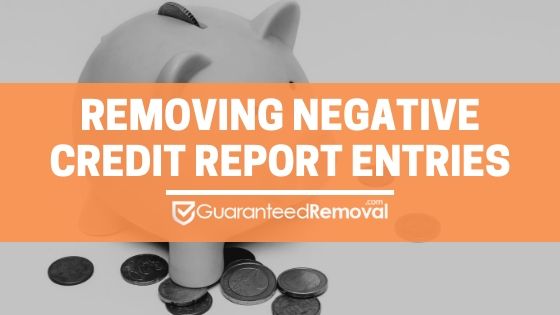Remove Personal Information From Google
We cannot always control what appears about us online. It is important that you do not wait to remove personal information from Google. This is quite a hot topic presently because people feel they have a right to privacy online.
Pew Research Center surveys have shown that 86% of people have attempted to remove content and personally identifiable information from Google reputation management. Tactics such as email encryption, cookie clearing, hidden IP, and more. While these things work, it may take time to outrank the negative content appearing.
Online Reputation Management is the strategic method used to ensure you remove sensitive personally identifiable information from Google once and for all. Consider, for a minute, that some 1,000,000,000 names are Googled each day. So essentially, someone enters your name once a week. It is important to make sure what people find is flattering and positive.
Advanced background checks are now conducted by schools, employers, prospective dates, landlords, and more. Say goodbye to “first-impressions”. Indeed, around 42% if those one billion daily name searches help people to decide whether or not to do business with the person they have searched for. Clearly, the results that come up are a powerful influencer. Therefore, clearing your name and personally identifiable information from the search results isn’t just about privacy on a web page, it is about your future.
How to Remove Information from Google
There are three main steps to clearing your name from Google:
- Prevention. This is about blocking the information from appearing in the future.
- Removal. This is about convincing a web page to remove your personal contact information online.
- Suppression. This is about making sure that the personal contact information you can’t get taken away won’t get found.
Prevention is always better than cure. It is about being proactive, stopping bad things from appearing right away. If you can prevent negative information from appearing in the first place, you won’t have to take action to remove it.
Whenever you engage in anything online, ask yourself whether those actions speak positively about your personal brand. It is about reflecting on how you want to present yourself. In fact, experts feel that everyone should have a formalized personal mission statement.
This should include core objectives and values, which you then have to stick to. Finding other personalities online with the same values and objectives is a great way to find examples of how to present yourself.
Those who have a successful Online Reputation Management should be seen as an inspiration to you. They have taken control of their personal brand and you can do the same.
Read more about the most common branding mistakes!
Do you have to ask yourself why or how to remove articles from the internet? You need to prioritize that for removal first. Remove your personal contact and physical address details, embarrassing photos and videos, private conversations, financial details, email addresses, work addresses, your arrest, and criminal records first.
Furthermore, remove your personal and intimate videos and photographs, copyrighted materials, negative reviews and press, and outdated information are all important to have removed.
DO YOU NEED ONLINE REPUTATION MANAGEMENT?
You will be happy to know that most of these are reasonably easy to remove personal information from Google. Indeed, sometimes, you are protected against these posts through federal laws. However, there are also pieces of information that belong to the site owner or webmaster and it is up to them to decide whether or not to remove it.
Mastering how you remove personal information from Google will only quicken the process. Again, this is why prevention is so important. This is also why you should write your own list of information, like your physical address, personal data, bank account, etc, you do not want to appear online and determine which pieces are most important to keep hidden.
You also need to ask yourself what kind of preventative steps you are currently taking. It is likely that there are a few things you should do but haven’t done yet, such as opting out of white pages and other public listings.
So, now you are a few steps closer to learning more about how to remove information from Google. Google reputation management should be one of your main concerns.
Viable Security Methods
- Having strong and unique passwords for all the websites you use. Purchase a good password manager so that you don’t forget your passwords but don’t have to write them down either.
- Using secure networks on your internet connection. Public WiFi networks are useful, but you should never use them for anything personal.
- Having secure backup systems in places, such as an external hard drive or a secure cloud account. All data brokers that you hold on your different devices should be regularly backed up.
- Updating all your software and hardware. While many of us don’t like to go through updates, they aren’t just to change some of the cosmetics of your operating system. Rather, they are about addressing any vulnerabilities that have been found in the system. Having a reliable computer allows you to actively remove personal information from Google.
- Having an up to date antivirus and antispyware package in place. The software is often built-in but regardless thereof, you must make sure automatic updating is switched on. This will ensure that you’re always fully protected from hackers, malware, viruses, and other such things.
- Having a fully secure email address. If you use multiple email accounts, you should check all of their terms of service and find out what problems they often encounter. If you can get better protection from a paid email server, consider investing in it.
- Only use verified apps on your smart devices. Do not log in through the web browser you use on your phone, but use the verified app immediately. This will also ensure you can automatically update the app as and when needed.
- Keeping all physical copies of your personal information is secured locations. A safety deposit box is always a good idea.
Alternative Methods On How to Remove Information From Google
A basic understanding of the above steps will make it far easier for you to be proactive about your information on Google. You may also engage in other security measures, which should all write down. This will give you a good overview of whether or not you are behaving in a responsible manner.
There are other things that you can do immediately to stop your private information and details from becoming readily available. The internet seems to have transformed into a huge database of personal information.
It is easier than ever to find someone’s phone number, home address, how long they have lived there, email address, and more, simply by entering someone’s name on Google. Because there are so many data brokers and websites, it can be quite difficult to remove sensitive personal information from Google, it is hard enough finding the content.

Again, this is about being proactive and making sure you don’t appear at all. The white pages are the first place you should head to in order to enlist yourself. And you must make sure that you don’t automatically connect any online accounts together, as this information could easily be sold. While that must be mentioned in the terms of service, most people never read those.
You may want to have a PO box or list your place of work as your home address. If you want to set up your own website, you should never list your sensitive personal information on it. Rather, have a separate email address that keeps your personal details private.
Under ICANN law, all information that is linked to domain registration is a matter of public knowledge, which means you won’t be able to remove this information from Google.
CONTACT US TODAY FOR A FREE CONSULTATION
Prevention is also absolutely vital in terms of unflattering, embarrassing, and humiliating photographs and videos. Unfortunately, sometimes it isn’t possible to stop someone from making those videos and photos. However, you can protect yourself. This must start with you not posting anything that can be taken out of context.
Remember your personal mission statement and make sure your own images and videos are fully aligned with your professional image. Do not post anything that does not fully match this.
If someone else were to have posted this inappropriate content, it becomes a little bit more difficult, albeit not impossible, to have it removed. We live in the day of smartphones and anything embarrassing or humiliating you do in public is likely to have been videoed and shared.
Hence, think about how you behave at all times. You should also never participate in taking intimate photographs or videos since those could easily find their way online through “revenge porn”.
Chats are also important. There have been many stories of prominent figures making jokes in a private chat that were incredibly inappropriate and that they made their way into the public domain. Email conversations, private chats, and other such messages are not truly private.
Having secure networks and connections in place will ensure that no third party can see what has been said, but you do have to consider that those people you sent the message to will eventually share it. The danger to your Online Reputation Management does not lie solely in hackers and malicious cybercriminals.
It can come from someone who is angry with you as well. Again, therefore, whenever you send something electronically, whether through email, IM, PM, Tweet, or any other digital medium, don’t say anything you wouldn’t happily say in public as well.
– Do not post something online you would not want your mother to see –
You must also prevent very sensitive information such as your medical history, your Social Security Number (SSN), or financial details from making their way online. Not only can this ruin your Online Reputation Management, but it can also lead to identity theft.
Thankfully, because of the fact that this information is truly classified as private, it is reasonably easy to have it removed. However, again, you must be proactive and ensure it doesn’t appear online in the first place. Make sure you store your details in secure places and that you don’t share any of it on untrusted websites.
Arrest records, criminal records, and how to remove mugshots online. Meanwhile, they are all part of the public domain. The only thing you can do in terms of prevention is making sure that you don’t break the law or are suspected to break the law. Again, things can be done to remove this information from Google.
In relation to things such as negative reviews and press and copyright information, you must always maintain proof that you own the intellectual property. For revenge porn, this proof of intellectual property is key. Filing a trademark or watermarking anything that you own is also very beneficial.
Last but not least, you must make sure that any biographical information you do want to have publicly available is up to date and that all outdated information has been updated or removed. This will also ensure that you rank for positive things on Google, instead of for negative things. Maintain a list of all locations that store your information so that you can update them all whenever needed.
Step 2 – Removal
No matter how proactive you have been, it is likely that there is already some information out there about you that you are not happy about. It is important that you regularly enter your own name in Google to see what comes up so that you know what you are up against as well. Thankfully, removal is possible, but you first have to understand what that is.
When you ask Google to take something down, they don’t actually physically remove and keep personally identifiable information private from Google. Rather, they de-index it. What this means is that the pages will no longer appear in the search results. If, however, someone who is looking for you knows on what website something was posted, they will still be able to find it through there.
Ultimately, however, your goal is to make sure that people no longer see any negative results. This can be done through suppression, de-indexation, and deletion, each of which is slightly different.
Looking first at de-indexing, this is what engines like Google will usually do if they receive a takedown request. Deleting a site or page from a site completely is very rare. Hence, when people speak of “removing something from Google”, they usually mean de-indexing.
When something is de-indexed, it simply means that it will no longer appear on the search engine that de-indexed it. The information is still out there, therefore, but Google won’t let it appear in the results anymore. The result is that it is far less likely that people find the information about you that you want to keep hidden. However, the threat is still out there and an astute searcher will be able to find it.
Do you know how to remove online reviews?
CONTACT US TODAY FOR A FREE CONSULTATION
Then, there is deleting something from a page altogether. This is possible, but it is difficult because only the site owner or webmaster is able to do so. Of course, it is always worth asking the question, and, in some cases, there is a legal case to be brought forward to having them remove personal info from Google.
If they delete it, then it means it is actually completely gone and it is gone for good (unless it is reposted). When a page is deleted, it will still show up on the search results for a while, until the web crawlers realize that it isn’t there anymore. Hence, you should also opt for de-indexing.
There are, unfortunately, disadvantages to both de-indexing and deletion. The biggest disadvantage is that it doesn’t really offer any guarantees. The website in question may have a cached version for instance, which can still be accessed.
Additionally, there may be screenshots of the post and the physical information may still be out there and simply find itself reposted somewhere else.
Suppress those bad comments online, time to start over. This is completely different and essentially relates to properties and processes that are within your control. If searching your name reveals negative results, your goal is to post more positive things instead, ensuring they rank more highly in the search engine results.
Ultimately, and with a substantial amount of effort, this means that the positive results are easier to find than the negative ones. The reality is that most people don’t look further than the first few pages of the search, so if you can stop the negatives from appearing there, they are as good as hidden completely.

The Law is on Your Side
- The Digital Millennium Copyright Act (DCMA), which you can apply to copyrighted work in the United States. This was signed into law by President Bill Clinton in 1998 in an effort to stop services, devices, and technology to be disseminated so that copyrighted works could only be accessed with the proper control. Additionally, the Act means that when people circumvent those controls, even if they don’t infringe on the copyright, they are guilty of a criminal offense. However, it applies mainly to online users and is hard to apply to intermediaries such as internet service providers. Hence, the DCMA is important and useful, but it is also limited.
- The agreement of Google to de-index any sensitive information for users based in the United States. This includes SSNs and credit card numbers. Essentially, Google has agreed that, if any information is posted online that could lead to financial harm or identity theft, the person that refers to can ask for the information to be removed. This does not, however, apply to your personal mailing address. Google will also usually remove any child sexual abuse imagery as well as revenge porn. Effectively, you need to be able to demonstrate that there is “sensitive information” that you wish to take down. The Help Forum from Google is very good to help you determine whether or not they will agree it is classified as sensitive.
- The Right to Be Forgotten. If you live in the European Union (EU) or in Argentina, you have the right to be forgotten by Google and the other search engines. What this means is that it is far more likely that you will indeed be able to have your removal request granted. However, you do have to meet the relevant criteria for this first.
- You’re in control because if any of the information that exists is on pages you own, such as your blog or your social media accounts, you can take it off yourself. The impact of negative social media can be devastating. It is quite surprising to see just how often the embarrassing information that people want removing comes from their own online accounts. You do have some power, therefore, and you need to exert it. Remember that all that information you posted on old social media pages, such as Hyves and MySpace, is still out there. You still have control over that, however, and you can still remove it. Make sure you think back about all your different accounts, no matter how long ago, and consider whether there is anything on there that you would rather not be in the public domain. While you are checking those, be proactive, and change your password!
- It doesn’t hurt to ask. If information about you is posted on someone’s website, you can always ask them to remove personal info from Google. A polite request can go a long way. Sometimes, people create memes and other such things and forget that they are dealing with actual individuals. A brief, polite reminder of that can work and is certainly worth a shot. Doing this is important because if the webmaster or site owner actually removes the information, it will also be taken away from the cached version. Of course, as previously mentioned, this does not offer any real guarantees, as the person could refuse your request, post the information elsewhere, or even be more inflamed by your request and share it even further as a form of retaliation.
Again, however, this is not an overnight process. You have to work really hard at building a foundation of your personal brand and you have to keep working on it. Over time, doing so will ensure your positive information overtakes the content that you want to keep hidden. But you also have to keep working at it.
Once you have been able to suppress the information, it won’t stay suppressed if you suddenly stop engaging in authoritative optimization practices across all your websites and all your social media accounts.
Suppression is a strategy that focuses on organic engagement, branding, SEO (Search Engine Optimization) properties, creating high-quality content, and remaining up to date with changes in the search engine algorithms.
Our team of reputation experts actively works on Ripoff Report removal solutions as well as any other unwarranted negative posts online.

Three key principles to suppression
- The creation of your baseline brand. This is harder then it sounds because you’re building your foundation and what will be the starting point of all Online Reputation Management. You must start by having all negative and irrelevant content that you have control over removed. Stop missing out on articles about you, sign up for Google Alerts. You must start by knowing what your current online presence is. Google Alerts will notify you via email the moment a new article is published. Consistency will help when it comes to your SEO practices and rankings online. You may also need to create more social media accounts across platforms. This is how to remove information from Google’s search results, or at least hide it.
- Building up your authority, credibility, and audience. ‘Business trust’ is not enough, you need loyal customers that will share your content with friends. Finding thought leaders and influencers in your area. Creating content for relevant, authority websites, and getting to know the demographics of your audience is vital for this.
- Finding new opportunities and going for them. Once you have an audience in place, you have set yourself apart as an authority. Actively engaged in various social media platforms is a great way to generate a following. In addition, you will have to create new opportunities. These simply come along but you also have to monitor online developments and changes and grab opportunities proactively.
CONTACT US TODAY FOR A FREE CONSULTATION
Online Reputation Management is time-consuming and most of it comes with no guarantees. Sometimes, your efforts will only succeed a little bit. Requests may be addressed but often replaced with something else. This is why it is so important that you properly build your brand.
When you suppress information, you ensure that no information exists that could tarnish your good reputation. Since you have built trust you will have time to make amends to the negativity.
Personal branding is complex, but help is out there for you. Software packages exist that will guide you through the entire process. Helping you to create the right properties and the right content at the right intervals. Ensure your actions match with what web spiders and crawlers are looking for if it is to be effective.
If it is, however, you will be able to make great steps forward, finding new professional and personal opportunities. But do remember that it is a process. You must monitor your results regularly in order to take action quickly and efficiently.
Remove Google Search Results for Existing Websites
Once you have discovered a website you deem harmful or negative there are some steps you must take before reaching out to Google. As we mentioned earlier, Google search and search results are an unbiased platform so calling them and complaining about a certain website will not do any good.
Furthermore, we have limited censorship online so there are no laws implemented currently that obligate Google to remove because an individual “doesn’t like it”.
The most popular example of this would be Revenge Sites=. These websites were designed to vent and talk about your ex-spouse or ex-girl/boyfriend publicly. This includes posting photos and writing somewhat defamatory articles for anyone with an internet connection to read.
Revenge sites such as ShesAHomeWrecker has turned into a platform for the spiteful and morally corrupt. This act is often done in a fit of rage stemming from a recent divorce or legal battle. It is important to take these websites seriously because doing nothing will not make matters better.
In fact, leaving a website up for too long gives it the ability to gain traction and authority, possibly ranking higher over time. Many individuals who are posted on revenge sites can check by simply ‘Googling’ their phone number.
It is important to note that Google WILL NOT remove unless the website has removed the information. If you feel the matter could have been handled legally, sending documents such as DMCA takedown notices or cease and assist letters could “scare” the website owners into removing the content.
If the webmaster does not comply with your requests, unless they have unlawfully posted the information, there is, unfortunately, no way to have it forcibly removed. There are several exceptions such as cheater sites and revenge porn. These articles are typically pulled down automatically from Google, Bing, and Yahoo. Learn more about Cheater Sites today.
Remove Google Search Results for Outdated Cache
Your dream job becomes much simpler if the content has already been removed. When you click on a website and it prompts a 4xx or 5xx error that is perfect. This means the webmaster has removed that page from their site. If this is where you are starting out, the removal process (or deindexing process) is basically done for you.
In a recent update, Google redesigned how they are notified to recrawl a particular website. In the past, you could simply visit the Google Search Console and copy/paste the outdated URL. Press submit and you are done. Now it takes a little more effort to expedite the time it takes to remove Google search results.
Next, you will want to visit or revisit DomainTools. This is again where you locate any email addresses or phone numbers for the website owner(s). By emailing or calling them, you can ask them to disallow that exact page on their sitemap. A sitemap is what Google looks at when recrawling each website for any updates or new posts.
By disallowing a certain page, you are telling Google you DO NOT want that to appear in their search results. After about 2-3 days of notifying Google, they will update their results to reflect the change.
Hiring the Professionals How to Remove Personal Information from Google
Sometimes, you will need to bring in some professional help. Doing so means looking into how good and honest that company actually is. Removing information from Google can be difficult if the content is still appearing.
The result is that reality also is that you will have to rely mainly on properly branding yourself. But, if your personal data has been subject to financial fraud, you have websites displaying personal data like medical records in search and there are Google searches involving that data we can help!
A good Online Reputation Management company will ensure all your profiles are relevant, up to date, and fully optimized. At the same time, they will teach you how to brand yourself and how to take preventative measures.
You must remember that you are only in control over your own sites and accounts. Optimization of positive content is key when figuring out how to remove your information from Google.
Hopefully, the information provided above will assist in how to remove sensitive information from Google. Focus on all three elements – prevention, removal, and suppress bad comments online. Do this, and you should be able to build a positive online image and personal brand.
This, in turn, will ensure you have more opportunities, both professionally and personally. Remove personal information from Google today!
How GuaranteedRemoval Can Help
We have worked in the Online Reputation Management industry for the past 5 years. During that time we have procured partnerships with the top media publishers in various industry.
Whether you are working to remove your information, news articles, or other info that would lead to unwanted direct contact from Google you need to submit removal requests to the service. Our professionals here can help you submit these removal requests and know how to follow Google’s global policy lead. Google receive removal requests every day, set yours apart by making sure it’s perfect the first time and coming from a professional team.
Hide the negatives and promote the positives with GuaranteedRemoval. Call us today, waiting will get you nowhere. We offer a FREE CONSULTATION, what are you waiting for?
How To Suppress Bad Comments Online?
Suppress bad comments online is a top priority for people concerned with their online reputation. The online world is completely public. Whenever someone makes a bad comment online about you or your service or product, the entire world can see it.
Unfortunately, people tend to make a judgment about you based on a number of different things, including:
● How long it took you to respond to a negative comment
● Your response.
● How the customer felt about your response
● The resolution of the complaint
 The internet is all about speed. When someone makes a bad comment, it can go viral and around the world in the blink of an eye.
The internet is all about speed. When someone makes a bad comment, it can go viral and around the world in the blink of an eye.
People are also online 24/7, which means they can access information at any time during the day.
Hence, if you care about your online reputation, you need to have your finger on the pulse at all times.
Suppress Bad Comments Online – Your Quick How-To Guide
There are a number of things that you can – and should – do if online comments attack you. As explained above, the fact that you respond and that you respond quickly are of key importance. You should also:
1. Never be Defensive
When you notice bad comments being made against you or your business, it can be tempting to respond in an emotional and defensive way. However, you must avoid this at all costs.
When faced with a negative comment, don’t consider it a reflection on you personally or on your business. Avoid being defensive when handling the comment. A defensive reaction from you can quickly escalate the issue. It’s best to be accommodating, polite and truly listen to the person complaining.
Remember that a bad comment does not mean that you are bad. It simply means that someone is not 100% happy, which can be due to a variety of different reasons. Don’t take things personally, but handle them professionally and politely instead.
2. Apologize and Offer a Solution
Bad comments are negative, by their very nature. However, they are actually a good thing, so long as you treat them properly. They are good because they offer an opportunity for you to learn how you can be even better. They are also an opportunity to show other customers that you know how to listen and you truly care about your customers. Hence, when you see a bad comment, you need to apologize and try to offer a solution.
“This is your opportunity to turn a disgruntled customer into your brand’s evangelist! This person (or people) obviously had some sense of loyalty to your brand if they’ve spent their money with you, “liked” your Facebook fan page, and/or followed you on Twitter.”
Did you know that only 20% of people who are unhappy take the time out to complain? This means that those who have left the bad comment are still approachable for a resolution, or they wouldn’t have contacted you at all. Furthermore, by apologizing to them and offering them a solution, you are doing the same for the 80% of complainants who did not take the time out to talk to you. This is one great way to prevent the need to suppress bad comments online.
3. Post Fantastic Content About You
Last but certainly not least, when you suppress your bad comments online, you need to make a full commitment and effort. What this means is not that you physically remove each item, one-by-one. As you can imagine, this can be almost impossible to find everything. If you highlight many positive things, these will go up the search results while the bad things will quickly drop down in the search results.
You’d be amazed at how consistent educational, informative, and inspirational posts and efficiently good press can outweigh anything bad. Learn how to remove articles from the internet while promoting yourself in a positive light.
Be quick, be apologetic, offer a solution, and be proactive in terms of sending out information that is positive and places you in a good light. Those are the best options available to you in terms of dealing with bad comments online.
Suppressing each bad comment about you or someone you care about online can be time-consuming. If you are ready to get started or have additional questions to suppress bad comments, contact us today.
How Long Does It Take To Remove Arrest Records?
Remove arrest records online is the best way to improve your reputation. Authorities allow arrest records to be public so now you want to know: “how long does it take to remove arrest records?”
In the past, nobody would look for arrest records. The process was time-consuming. They would need to visit the police department, make an appointment, and then spend hours waiting for something to come up. Now, that everything is digital, people can find arrest records just by searching your name on Google.
The problem with an arrest record is that it does not paint the full picture of the person. It provides personal details about you, including the reason for your arrest, but it does not list the outcome. Perhaps the court forgave you, or it was a case of mistaken identity, or you were found guilty but you have already paid your debt to society.
Either way, when people see an arrest record, they will instantly have a negative opinion about you, regardless of the outcome of the case. Therefore, you may consider removing an arrest record from the internet. In this article, we will answer the question: how long does it take to remove arrest records?

Expungements and Sealing
You have two options available to have an arrest record removed: you can have the record expunged or sealed. The two are different:
The key difference between expunging a person’s criminal record and sealing it is that a sealed record still “exists” in both a legal and physical sense, while expungement results in the deletion of any record that an arrest or criminal charge ever occurred.
It is typically standard to seal records of juveniles once they turn 18, along with other criminal cases involving a juvenile, but those records are still accessible with a court order.
You may also face a challenge in understanding your state laws. Hence, it is important, and easier, to work with a professional reputation management firm. This way you spend less time contacting multiple offices and reduce the amount of “middle-men” to remove your arrest records.
Therefore, whether that is through expungement, sealing, or through other methods that make it harder for others to find the information, the question remains…. how long do mugshot removals take?
How Long Do Mugshot Removals Take?
The simple answer to the above question is “it depends”. Why? Each state has its own rules. So, where you reside in one varying factor. Take, for instance, the state of Florida. The average time to complete a Florida record sealing or expungement is 5-7 months. Again, the length of time depends on various factors.
While, the state of New York, on the other hand, automatically seals certain details after a set period. On the other hand, in New York, they will never allow records to be expunged.
You can seal any case against you where there was no conviction under New York CPL 160.50. These cases have been sealed automatically since 1991, so unless you have a very old conviction, you don’t need to take any action.
Does Conviction Type Matter?
Then, there is the fact that the type of conviction matters. Again, New York is different. If you have had a DUI or DWI conviction, which many people want to have removed from their records, the time this takes again varies by state.
It is important to consult with a local DUI or DWI attorney to find out if you are eligible to have your record expunged. Generally, the shortest period of time you will have to wait is one year.
There is no clear answer as to how long it takes to have arrest records removed. When you call a reputation management company they will give you an estimate of how long it takes to remove arrest records online.
If you have further questions on how to remove an arrest record, contact us today and our removal experts will discuss your options.
Google Reputation Management
Google has become a household name and even a verb after completely taking over the internet. Every second there are over 40,000 Google searches conducted on either a computer, mobile device, or tablet.
That translates to 3.5 Billion Google searches per day and just over 1 Trillion annually. So if you are seeing something negative online it is imperative that you handle it quickly and efficiently. How you are viewed online makes all the difference. Companies in 2018 make these mistakes every day.
Here is everything you need to know about Online Reputation Management.

How to Handle Google Reputation Management Efficiently
For starters, Google does not choose what appears in the search results. Google is an unbiased search engine that ranks websites depending on popularity. The higher the domain/page authority is, the greater the chance you will see that website on Google. There are 7.6 Billion people on Earth today.
That means there may be some misleading information online if you have a popular name. If you have never entered your name into the Google search query we highly suggest you do once you’re done reading this article.
Unfortunately, Google has minimal control over what appears. Google never revises search results based on fiction or fact. The biggest example of this that we see every day is the publication of mugshots. We had the pleasure of speaking with another reputable company, EraseMugshots.com, who specializes solely in the removal efforts of unlawful arrest records online.
Individuals are “innocent until proven guilty” yet once their charges are dropped or expunged these websites do not update what they had posted.
This creates a dilemma for this person if they should ever decide to get a new job. Without the chance to explain themselves or tell them they were never charged, their resume is thrown in the trash.
Google acts as a medium for researchers and website owners. People need to realize that it is not Google’s fault their mugshot appears on the first page. It is the person who owns that specific website.
Negative information on Google has the ability to hurt your career, ruin family/friend relationships, and even deterring anyone from going on a date with you.
How To Control Your Google Search
Please note that although it is possible to remove from Google that does not mean you can 100% of the time. Unless the website owner has removed the page, the only recourse you have to combat negative information is with legal assistance. Unless the website is part of a strong legal battle or civil suit, Google will not intervene. Read more on how to remove articles from the internet.
From our research, Google visitors almost never go past the first page. Sometimes they only chose from the top 5 results, which can make your life a little easier while trying to fix or remove information. There are many tactics you can start implementing today to regain control over your Google search results.
First and most likely the most powerful would be through a press release campaign. Call us today to get rid of the first page of Google and redesign it with the only content you approve of. This solution, on average, takes about 3-6 months. Through the use of constant press releases and social media content curation, you can “flood” Google.
Pushing back all the unwanted information to page 2 where almost nobody visits.
Start by getting positive links online. Great for when you are constructing your press releases, talk about the good you do for the community. (i.e. volunteer work or charitable donations).

How GuaranteedRemoval Can Help!
In conclusion, Google reputation management done right with GuaranteedRemoval is your best bet. We are the only company that offers a 100% guarantee WITH money-back. We help to promote your reputation online by writing about what you want. Show the world the real you. We can help by protecting your privacy and improving your Google reputation management at the same time.
SEO and ORM
You are a growing business, but your site is not ranking highly online when users are searching for a product you sell. You decide to implement a strategy in which you utilize keywords and phrases that will boost your views and ultimately bring more consumers to your site. This strategy is called search engine optimization (SEO) and is utilized by users that want to establish a presence online.
As your site begins to receive more hits, your product sales go up as well. You decide to check out a review site in which your product is rated and reviewed. This is where you see a list of unhappy customers that are very displeased with your product. You would like to hide this page from the public, so you decide to utilize a strategy in which you can manage negative reviews. This strategy is called online reputation management (ORM) and is beneficial to users that want to protect their online reputation.
Differences Among SEO and ORM
ORM uses SEO as a part of its strategy to take control of the online conversation, but it is not SEO. The two concepts separately are very different and have diverse goals. Here are a few of the differences between SEO and ORM:
- ORM focuses solely on online conversation control. Removing any negative content, boosting positive pages, and allowing users to maintain a positive image
- SEO focuses on generating traffic. This is how ORM uses it to boost pages, but only to generate traffic to positive pages that help it rank highly
- Both generate traffic and rank higher with Google, Bing, or Yahoo!
Although using these strategies separately is common, using them together can help your business grow immensely throwing proper management of your online reputation.

ORM and SEO – The Buying Process
Here are the are key steps in which SEO and ORM can play a role.
- Awareness: This stage is where the consumer develops a need. This could be anything from buying a new coat for winter or needing a new laptop for your job.
- Consideration: The user then goes online and looks for potential products.
- Purchase: The cycle then comes to an end after the user then purchases the product they favor the most.
Now, SEO mainly plays a role in the awareness stage. Where users looked up an article on what are the best attributes of a certain product. ORM plays a role in the consideration stage by hiding the negative reviews of the product and permitting the product to have a favorable online image. This is how ORM and SEO can play a role in improving the number of customers your business may receive.

Why SEO and ORM are Important
SEO and ORM are extremely advantageous to any business that wishes to expand its consumer base. ORM can also benefit individuals that wish to protect their online reputation. ORM helps to eliminate any negative information that may be available about them online. Most can handle ORM on their own. However, if you believe your situation is rather complex, contacting online reputation management may be a viable option and can successfully aid in protecting your online reputation.
Removing Negative Credit Report Entries
Removing negative credit report entries can be tough. Let us walk you through how you can start to clean up your credit today.
At whatever point you do anything inconvenient surprisingly history, for example, default on an advance or Visa or have late installments, a negative section will be accounted for on your record as a consumer. At the point when a customer expels negative sections from his credit report, it is called credit fix.
These negative sections can influence you from numerous points of view. It will be more diligently to get endorsement for money-related items, for example, home advances and Mastercards, and you will definitely be surveyed a higher yearly rate (APR) and numerous extra add on expenses, for example, month to month and yearly charges and charges.
On the off chance that you end up in this circumstance, there is uplifting news. There are plenty of organizations, both conventional and on the web, which offer credit fix administrations, for an expense. On the off chance that you would want to spare yourself the monetary cost, you can endeavor this undertaking yourself.
Request a Free Consultation
What You Need
You should initially get a duplicate of your financial record, which might be finished by reaching the three noteworthy announcing organizations – Equifax, Experian, and TransUnion – and mentioning a duplicate. These three detailing authorities are will undoubtedly give one free duplicate of your credit report at regular intervals. You can call (877) 322-8228 to get your free duplicate. Then again, you can demand a duplicate from the numerous online organizations which offer this administration.
When you get your record as a consumer, you should take a couple of minutes to audit the data contained on it for any mistaken or false data. This survey ought to incorporate ALL data recorded, not simply the money related data. Make certain that your full lawful name appears and that your date of birth, past addresses, and your business data is precise.
Who to Contact
The credit authority has 30 days to check the credit report passage. On the off chance that the credit department can’t get confirmation inside 30 days, it must expel the section. The credit department will reach back to you with any moves it has made as to your entrances.
If there is a possibility that the credit revealing organization chooses not to change or expel a thing you feel should be modified or evacuated, you should contact the detailing office and solicitation that they let you know how and why they touched base at this choice. This is called mentioning a “strategy for the check.”

Despite the fact that this procedure can be tedious, it is advantageous so as to expel every single negative section. This will build your FICO assessment which will expand your odds of fitting the bill for better monetary items.
Removing Negative Credit Report Entries With GuaranteedRemoval
Please complete the form below to get started. One of our knowledgable reputation specialists will reach out to you as soon as possible with a detailed solution perfectly catered to your needs.
Request a Free Consultation
Keep Your Personal Information Private
In 2018, almost everyone has access to the internet whether it is via a smartphone or on a computer at home. While uploading photos to Facebook or Instagram may be fun, you need to keep in mind that everyone in the world now has access to your photo(s). It is essential to maintain a high level of security while writing or posting online.
Let us break down the top reasons why we feel you need to keep your personal information private. Personal reputation is how you are perceived by the world as an individual. It is the first thing anyone thinks about you when they hear your name or see your photo online. We all know that one friend that posts on Instagram 10x a day and updates his/her Facebook status regularly. You begin to form opinions about individuals that you have never even met by the way they carry themselves online. While most of this is under your control, you need to be cautious of what others do with that information you are publishing.
Top Reasons Why Should Keep Your Personal Information Private
Identity Theft
In this digital era, we are utilizing more online applications to manage our everyday lives. Ensuring your social media accounts and banking information is secure is not difficult if you follow some easy to learn steps. Identity theft is when an individual unlawfully obtains personal/private information about someone in order to impersonate them (mostly for) financial gain.
You can avoid these cyber-attacks by using different passwords on every website. This the most simple and effective way to stop identity theft. Many individuals use one or two passwords for everything. This is great for yourself and so you can remember but what happens when a hacker finds that one password, they now have access to everything!
Therefore, creating passwords that are alpha-numeric with at least 12 characters is the way to go. If you use letters, numbers, and special characters there are over 1 Trillion variations the hacker will need to attempt. Making this task nearly impossible and in turn, safeguarding your information for good. Change your passwords every couple of months.
The next step you should take to keep your personal information private would be to opt-out from any and all background reporting databases. These sites report your exact address, links to your social media accounts, and even friends and family members.
Removing yourself from these 40+ sites will make the task of finding your personal information even more difficult for any hacker. Lastly, make sure you constantly monitor all of your accounts for possible discrepancies. By monitoring your accounts, you will know instantly if something is wrong as you can resolve the issue before it gets bigger.
Future Job Opportunities
Next, sites like Facebook, Instagram, and Twitter are morphing into your “second resume”. This is where potential employers can get a good sense of your personality, an easy way to gauge if you are the right fit for their company. Unless your profile is private, refrain from posting political or religion based posts as this may hinder any job opportunities that come your way in the future. Do not walk into your next interview blind, review your social accounts prior to applying for a position to have the best chance of getting the job.

Credit Scams
This may seem fairly straightforward for many millennials, however, for the older users of the internet, this is very important. When you are online, there are some easy indicators you can see to instantly reassure you that the site you are on is secure. Most importantly find out if a site is ‘secure’. This is simply done by looking at the website address. When you type in Google.com, there is an https:// placed before the web address. This is the SSL telling you this site is secure “https://. If there is no ‘s’ that site is not secure.
As we start to drift away from cash to plastic credit/debit cards this opens new doors for cyberhackers. When setting up your cards, again make the passwords unique and change them monthly. In addition, use a PIN nobody can guess. This means to refrain from using addresses or birthday! As annoying this can seem it will benefit you in the long run by making yourself almost invincible to cyber attacks. Next time you are visiting your bank ask them about setting up secondary privacy questions, this will automatically lock someone out after too many wrong attempts.
Closing Thoughts on Keeping Personal Information Private
Nowadays it is very tempting to use every feature that social media offers, like the location for instance. Keep in mind that you are literally telling people where you are at that exact moment. These actions leave you prone to not only identity theft but other attacks like a home invasion! Your personal address does not have to be on Facebook, even if there is a field for it. Start by reviewing the privacy policies on each website and take every measure you can to safeguard your personal information. Be smart when you are online, we live in a very transparent world, therefore keeping your information private is imperative. Call us if you see something online you disagree with, we can help.
If you are seeking more information on how to remove articles from the internet check out our recent blog!






